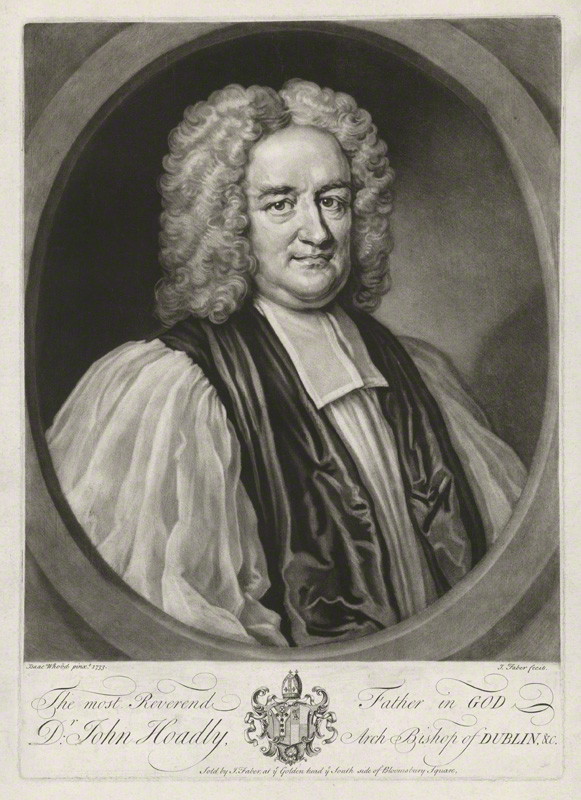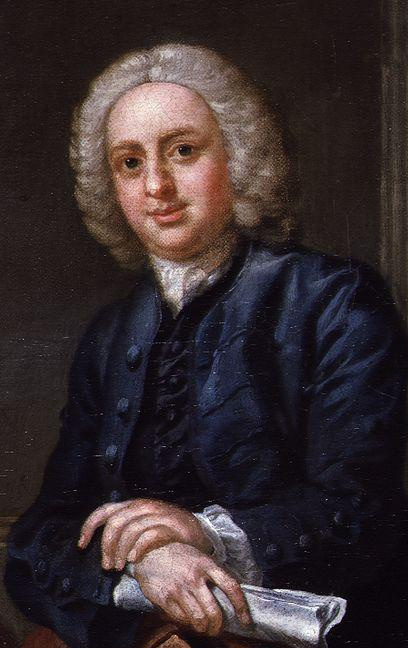|
Hoadly
Hoadly is a surname, derived from the village of West Hoathly in Sussex. Notable people with the surname include: *Benjamin Hoadly (1676–1761), English clergyman * Benjamin Hoadly (physician) (1706–1757), English physician and dramatist *Charles J. Hoadly (1828–1900), American librarian and historian * George Hoadly (1826–1902), Governor of Ohio * John Hoadly (1678–1746), English clergyman *John Hoadly (playwright) (1711–1776), English cleric, poet and dramatist *Samuel Hoadly (1643–1705), English educator, father of Benjamin and John *Sarah Hoadly (1676–1743), English portrait painter, wife of Benjamin See also * Hoadly, Virginia, unincorporated community *Hoadley Hoadley is a surname. Notable people with the surname include: * Abel Hoadley (1844–1918), Australian confectioner * Charles Hoadley (1887–1947), Australian geologist, Antarctic explorer and Scout Leader * David Hoadley, various people * Geor ..., surname {{surname English toponymic surnames ... [...More Info...] [...Related Items...] OR: [Wikipedia] [Google] [Baidu] |
Benjamin Hoadly
Benjamin Hoadly (14 November 1676 – 17 April 1761) was an English clergyman, who was successively Bishop of Bangor, of Hereford, of Salisbury, and finally of Winchester. He is best known as the initiator of the Bangorian Controversy. Life He was educated at St Catharine's College, Cambridge and ordained a priest in 1700. He was rector of St Peter-le-Poer, London, from 1704 to 1724, and of St Leonard's, Streatham, from 1710 to 1723. His participation in controversy began at the beginning of his career, when he advocated conformity of the religious rites from the Scottish and English churches for the sake of union. He became a leader of the low church and found favour with the Whig party. He battled with Francis Atterbury, who was the spokesman for the high church group and Tory leader on the subject of passive obedience and non-resistance (i.e. obedience of divines that would not involve swearing allegiance or changing their eucharistic rites but would also not invo ... [...More Info...] [...Related Items...] OR: [Wikipedia] [Google] [Baidu] |
John Hoadly
John Hoadly (27 September 1678 - 19 July 1746) was an Anglican divine in the Church of Ireland. He served as Bishop of Ferns and Leighlin (1727 to 1730), as Archbishop of Dublin (1730 to 1742), and as Archbishop of Armagh from 1742 until his death. Life He was born at Tottenham, Middlesex, 27 September 1678, son of Samuel Hoadly and Martha Pickering, and was a younger brother of Benjamin Hoadly. He was a member of St Catharine's Hall, Cambridge (B.A. 1697), and in September 1700 was appointed under-master of Norwich grammar school, of which his father was headmaster. After passing some years there he became chaplain to Bishop Gilbert Burnet, who gave him the rectory of St. Edmund's, Salisbury, and made him successively prebendary (21 February 1705–6), archdeacon (6 November 1710), and chancellor (16 April 1713) of Salisbury. The author of a pamphlet ''The Salisbury Quarrel Ended'' of 1710, relating to local conflicts, attributed to Hoadly's influence on the High Church party ... [...More Info...] [...Related Items...] OR: [Wikipedia] [Google] [Baidu] |
George Hoadly
George Hoadly (July 31, 1826August 26, 1902) was a Democratic politician. He served as the 36th governor of Ohio. Biography Hoadly was born in New Haven, Connecticut, on July 31, 1826. As the son of George Hoadley and Mary Ann Woolsey Hoadley, his birth name was "Hoadley", but he later dropped the "e". George Hoadly graduated from Western Reserve College and attended Harvard Law School, where his fellow students included Rutherford B. Hayes and John Howell. He then studied law with Charles Converse of Zanesville, followed by study with the firm of Flamen Ball and Salmon P. Chase. Upon attaining admission to the bar Hoadly practiced in Cincinnati, initially in partnership with Ball and Chase. Hoadly was appointed as Judge of the Cincinnati Superior Court in 1851, 1859 and 1864. From 1855 to 1859 he was City Solicitor. Hoadly also taught at the Cincinnati Law School, and served as a trustee of the University of Cincinnati. Originally a Democrat, he joined the Republican ... [...More Info...] [...Related Items...] OR: [Wikipedia] [Google] [Baidu] |
John Hoadly (playwright)
John Hoadly (1711–1776) was an English cleric, known as a poet and dramatist. Life Born in Broad Street, London, on 8 October 1711, he was the youngest son of Bishop Benjamin Hoadly by his wife Sarah Curtis. After attending Newcome's school at Hackney, where he played the part of Phocyas in John Hughes's ''Siege of Damascus'',’ he was sent in 1730 to Corpus Christi College, Cambridge. At about the same time he entered the Middle Temple in order to qualify for the bar. Having graduated LL.B. in 1735 Hoadly decided to become a clergyman, a career in which his father had patronage. On 29 November 1735 he was appointed chancellor of the diocese of Winchester, and was ordained deacon by his father on the following 7 December, and priest the 21st of the same month. He was immediately received into Frederick, Prince of Wales's household as his chaplain, as he afterwards was in that of the Princess Dowager, on 6 May 1751. Hoadly accumulated preferments. He obtained the rector ... [...More Info...] [...Related Items...] OR: [Wikipedia] [Google] [Baidu] |
Sarah Hoadly
Sarah Curtis (1676–1743), wife of Benjamin Hoadly, was a British portrait painter. Life Sarah Curtis was born in 1676 and before her marriage she gained a reputation as a portrait painter. She was a pupil of Mary Beale, and among her sitters were William Whiston, Gilbert Burnet, and her husband. Her portrait of Burnet was engraved by William Faithorne the Younger. The picture of her husband, which was, 'as is believed, touched up by Hogarth’, is in the National Portrait Gallery. Curtis married one of her sitters, Benjamin Hoadly, her second husband, at St. James's, Piccadilly, on 30 May 1701. ''Enlightenment prelate: Benjamin Hoadly, 1676-1761'' William Gibson, pp. 53, 251, James Clark, 2004. By her the bishop had five ch ... [...More Info...] [...Related Items...] OR: [Wikipedia] [Google] [Baidu] |
Benjamin Hoadly (physician)
Benjamin Hoadly (1706–1757) was an English physician, known also as a dramatist. Life The son of Benjamin Hoadly, bishop of Winchester, he was born on 10 February 1706 in Broad Street, London. He was sent to Newcome's academy at Hackney, and then to Corpus Christi College, Cambridge, where he was admitted on 8 April 1722. He read mathematics, and attended the lectures of Nicholas Saunderson. He graduated M.B. 1727, and M.D. April 1728, having already been elected a Fellow of the Royal Society. He was registrar of Hereford while his father was bishop there (1721–4). Hoadly settled in London, and was elected a fellow of the Royal College of Physicians 29 December 1736. In the following spring he delivered the Gulstonian lectures on the organs of respiration, which were printed. In 1739 he was elected censor, and in 1742 delivered a commonplace Harveian oration, which was printed. On 9 June 1742 he was made physician to the king's household, and on 4 January 1746 physician t ... [...More Info...] [...Related Items...] OR: [Wikipedia] [Google] [Baidu] |
Samuel Hoadly
Samuel Hoadly (1643–1705), was a schoolmaster and writer of educational books. His ''Natural Method of Teaching'' was the most popular school manual of its time, remaining in print for almost a century. Life Hoadly was born 30 September 1643 at Guildford, New England, whither his parents had fled at the outbreak of the great rebellion. In 1655 his parents returned to Great Britain and settled in Edinburgh, where Samuel was educated, matriculating in 1659 in the university. In 1662 his parents removed to Rolvenden in Kent. Next year Samuel became an assistant-master in the Cranbrook free school. He was in holy orders, but never held any benefice. Hoadly established a private school at Westerham in 1671, whence in 1678 he removed to Tottenham High Cross. In 1686 he removed to Brook House, Hackney. He was appointed in 1700 head-master of Norwich School, an appointment which he held till his death on 17 April 1705. He was twice married; first in 1666 to Mary Wood, who died in child ... [...More Info...] [...Related Items...] OR: [Wikipedia] [Google] [Baidu] |
Hoadly, Virginia
Hoadly is an unincorporated community in Prince William County, in the U.S. state of Virginia Virginia, officially the Commonwealth of Virginia, is a state in the Mid-Atlantic and Southeastern regions of the United States, between the Atlantic Coast and the Appalachian Mountains. The geography and climate of the Commonwealth ar .... References * Unincorporated communities in Virginia Unincorporated communities in Prince William County, Virginia Washington metropolitan area {{PrinceWilliamCountyVA-geo-stub ... [...More Info...] [...Related Items...] OR: [Wikipedia] [Google] [Baidu] |
Hoadley
Hoadley is a surname. Notable people with the surname include: * Abel Hoadley (1844–1918), Australian confectioner * Charles Hoadley (1887–1947), Australian geologist, Antarctic explorer and Scout Leader * David Hoadley, various people * George Hoadley, various people * Jon Hoadley (born 1983), American politician * Joseph H. Hoadley (born 1863), American financier * Katherine A. Hoadley, American breast cancer researcher * Mike Hoadley, American politician * Phil Hoadley (born 1952), English footballer * R. Bruce Hoadley (1933–2019), American wood scientist * Rob Hoadley Rob Hoadley (born 28 March 1980) is an English rugby union former player and current coach. He is the former head coach of the San Diego Legion of Major League Rugby (MLR). Professional career Hoadley was born in Hammersmith, London, England. H ... (born 1980), English rugby player * Silas Hoadley (1786–1870), American clockmaker * Simon Hoadley (born 1956), English cricketer * Stephen Hoadley ... [...More Info...] [...Related Items...] OR: [Wikipedia] [Google] [Baidu] |
West Hoathly
West Hoathly is a village and civil parish in the Mid Sussex District, Mid Sussex District of West Sussex, England, located south west of East Grinstead. In the 2001 census 2,121 people, of whom 1,150 were economically active, lived in 813 households. At the 2011 Census the population increased to 2,181. The parish, which has a land area of , includes the Hamlet (place), hamlets of Highbrook, Selsfield Common and Sharpthorne. The mostly rural parish is centred on West Hoathly village, an ancient hilltop settlement in the Weald, High Weald between the North Downs, North and South Downs. History The area was already settled by the 11th century, when St Margaret's Church, West Hoathly, St Margaret's Church was founded. Names recorded at that time include ''Hadlega'' and ''Hodlega''—later standardised to ''Hodlegh'' and ''Hothelegh'', then (West) Hoathly. This Anglo-Saxons, Anglo-Saxon word signifies a heath-covered clearing. The parish lay on the edge of the dense woodland of ... [...More Info...] [...Related Items...] OR: [Wikipedia] [Google] [Baidu] |
Charles J
Charles is a masculine given name predominantly found in English and French speaking countries. It is from the French form ''Charles'' of the Proto-Germanic name (in runic alphabet) or ''*karilaz'' (in Latin alphabet), whose meaning was "free man". The Old English descendant of this word was '' Ċearl'' or ''Ċeorl'', as the name of King Cearl of Mercia, that disappeared after the Norman conquest of England. The name was notably borne by Charlemagne (Charles the Great), and was at the time Latinized as ''Karolus'' (as in ''Vita Karoli Magni''), later also as '' Carolus''. Some Germanic languages, for example Dutch and German, have retained the word in two separate senses. In the particular case of Dutch, ''Karel'' refers to the given name, whereas the noun ''kerel'' means "a bloke, fellow, man". Etymology The name's etymology is a Common Germanic noun ''*karilaz'' meaning "free man", which survives in English as churl (< Old English ''ċeorl''), which developed its depr ... [...More Info...] [...Related Items...] OR: [Wikipedia] [Google] [Baidu] |




